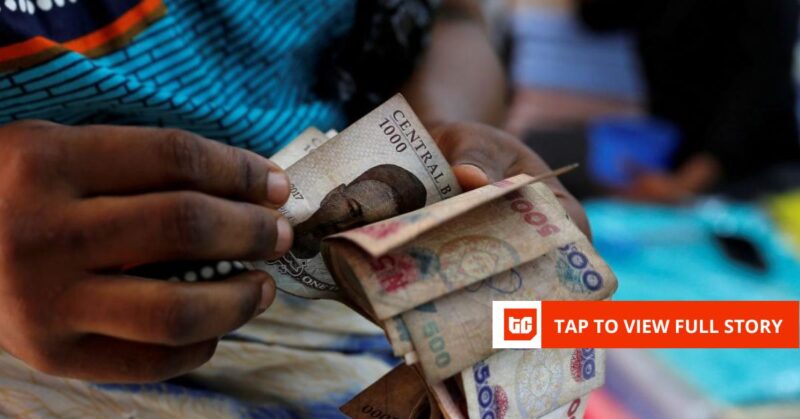Despite years of fintech expansion, internet banking growth, and mobile banking, Nigeria’s informal economy still operates primarily on cash. Only one in four informal businesses reports that digital payments account for at least 10% of their total revenue, according to Moniepoint’s 2025 Informal Economy Report.
The figure reveals the reality of the country’s payment boom, where internet and mobile transfers surged by 34.06% to ₦647.05 trillion ($439.86 billion) according to new Central Bank of Nigeria data. However, for millions of small business owners, from roadside vendors to market traders, cash is still king and trustworthy.
Micro, Small, and Medium-sized Enterprises (MSMEs) are essential to Nigeria’s economy, contributing around 65% of GDP and providing more than 80% of all jobs, but many of these businesses still see digital payments as an option, not a lifeline.
“For most informal businesses, digital payments are an option, and typically not the full story,” the report notes. “1 in 4 of them say that digital payments account for less than 10% of their total business revenue.”
Transfers are growing
Transfers are becoming more common, accounting for 39% of payments for businesses. Although it pales in comparison with cash, which accounts for 51%. Cards accounted for 9% because informal businesses still do not own POS terminals or avoid them because of maintenance costs and transaction delays.
While cash still dominates, businesses are increasingly depending on transfers as speed and ease improve, and card payments continue to lag. “Informal businesses are less capable of receiving digital payments via cards, leading to a heavier reliance on transfers,” Moniepoint said.
All hope is not lost, as 16% of these businesses said digital transactions accounted for over 50% of their business revenue.
While digital payments have immense benefits for businesses, especially in the informal economy, “the data shows that access to digital payments remains constrained for most of them.”
This means that, even with the rise of mobile money agents and fintech apps, most micro-enterprises still operate outside the cashless economy.
Access and affordability remain key constraints. For instance, broadband connectivity is still below 50% in Nigeria, and tools built for digital commerce need a stable internet.
“While digitisation has improved payment flows, poor digital infrastructure and low financial literacy remain stumbling blocks,” said Chinyere Almona, Director-General of the Lagos Chamber of Commerce and Industry.








